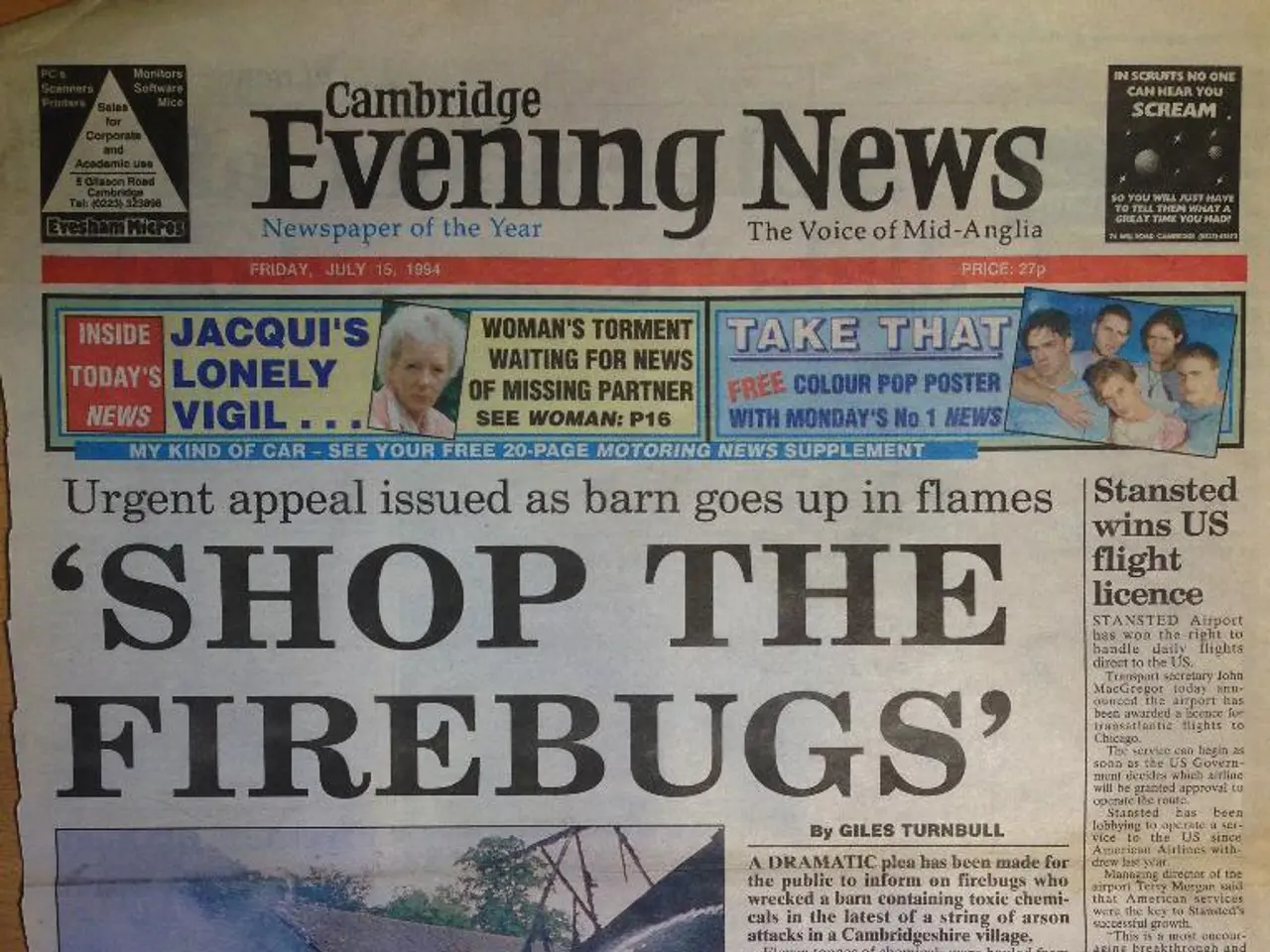Rowling Celebrates Progress in Transgender Rights Restrictions
British Supreme Court Clarifies Definition of 'Woman' in Equality Act
In a landmark ruling, the British Supreme Court has determined that the legal definition of 'woman' and 'sex' in the Equality Act 2010 should be based on biological sex. This decision, made in July 2025, excludes transgender women with Gender Recognition Certificates (GRCs) from the definition of 'woman', instead offering protection under the 'gender reassignment' characteristic.
The ruling, which is effective in Scotland, England, and Wales, aims to ensure clarity and workable protections, particularly around areas like pregnancy, maternity, and sex-specific rights. The Court emphasized that allowing 'certificated' (legally recognized) sex to redefine these terms would create incoherence and undermine protections.
The decision has significant implications for gender-specific rights and provisions, particularly access to spaces and services designated for women only. Transgender individuals retain anti-discrimination protections but under the 'gender reassignment' strand instead of 'sex'.
The ruling has sparked debate, legal and social complexity, and revisions by service providers. For instance, the City of London Corporation is reviewing access policies for gender-segregated facilities like Hampstead Heath bathing ponds. The ruling has also prompted ongoing consultations and legal advice across public bodies and employers about how to implement the new legal interpretation without discrimination or exclusion.
The case was brought to the court by three Scottish women, supported by "For Women Scotland." Lord Hodge, one of the judges, stressed that the decision should not be seen as a victory for one side over the other. He warned against interpreting the ruling as a political statement, stating "This is not a triumph of one group over another."
The Scottish government supported the view that trans women should be protected under gender-specific measures, while "For Women Scotland" argued that such protective rights should only apply to those born female. The ruling overturns a previous Scottish court decision from 2023 that had affirmed the legal recognition of trans women. However, it does not affect the previous English and Welsh court decisions that have affirmed the legal recognition of trans women.
J.K. Rowling, author of the Harry Potter series, has expressed enthusiasm for the ruling, stating that it is a milestone in the protection of women's and girls' rights in the UK. Kemi Badenoch, Minister for Women and Equalities and Chair of the Conservative Party, has also welcomed the ruling, describing it as a "victory for women".
It is important to note that the ruling does not affect the legal protection of trans people under the Equality Act. The Scottish government has reiterated that the law continues to protect trans people from discrimination.
In conclusion, the ruling legally reaffirms a biological definition of sex for the purposes of the Equality Act 2010 in Great Britain, leading to adjustments in policy and ongoing public discourse about balancing the rights of cisgender women and transgender individuals.
In this context, politics come into play as discussions and interpretations of the Supreme Court's ruling on the Equality Act spark debates among various groups, including legislative bodies, service providers, and advocacy organizations. General-news outlets are reportings on these ongoing conversations and the revisions that follow.
The ruling's implications for gender-specific rights and provisions in regards to access to spaces and services designated for women raise questions about the boundaries of equality and the balance between protecting the rights of cisgender women and transgender individuals. These issues become subjects of political and social discourse in the United Kingdom.








